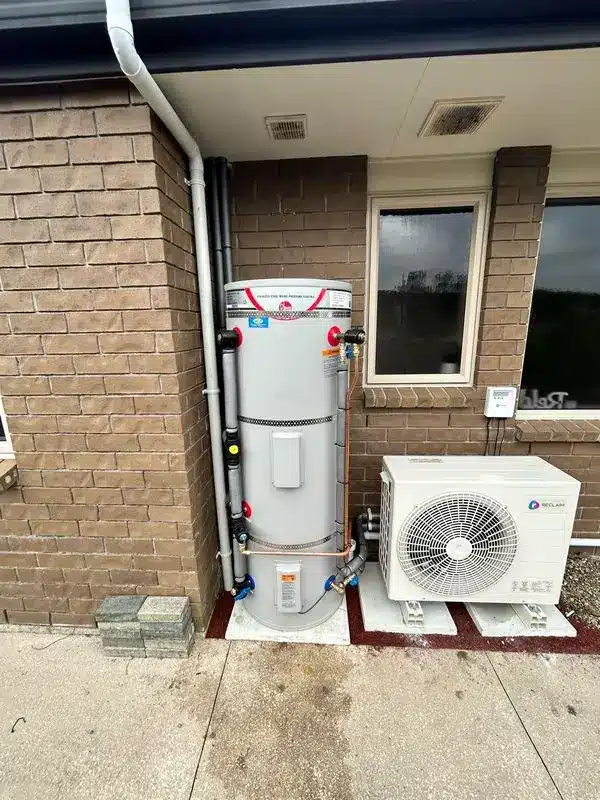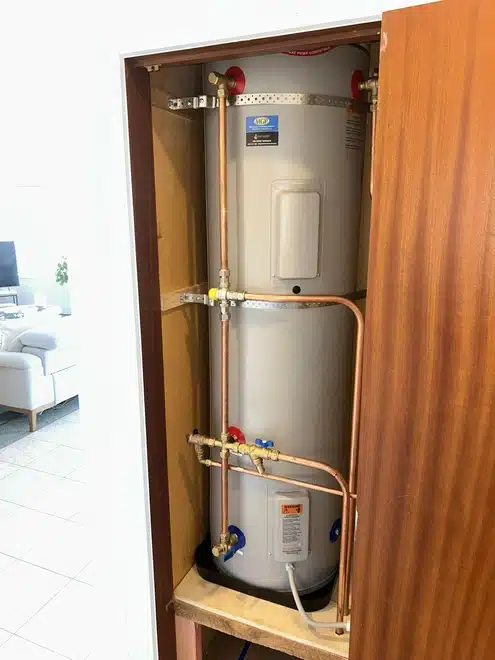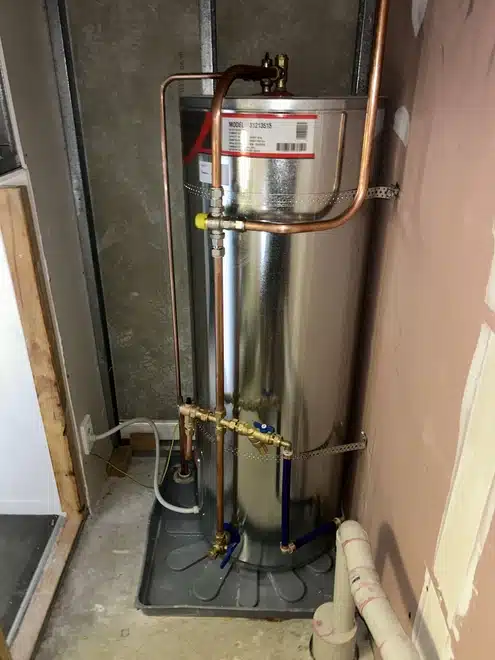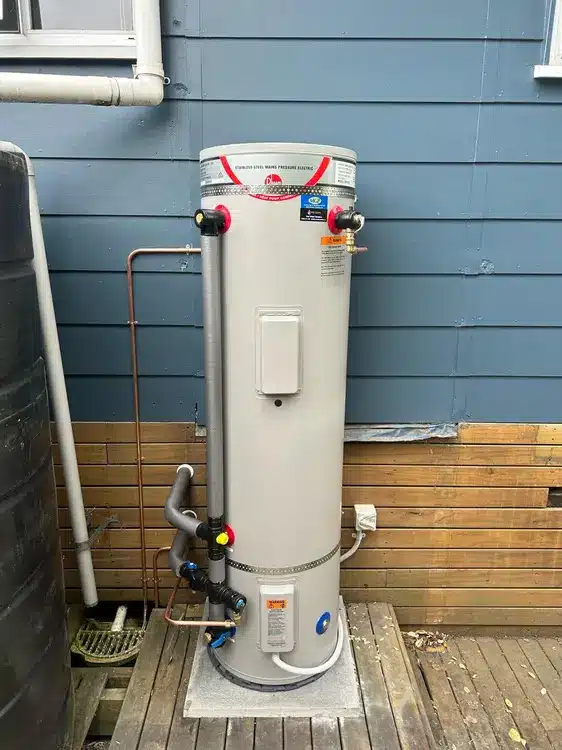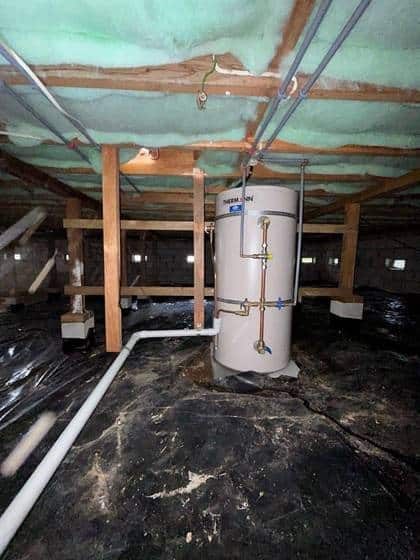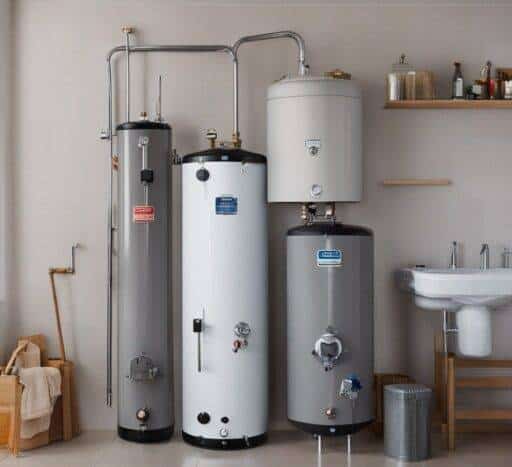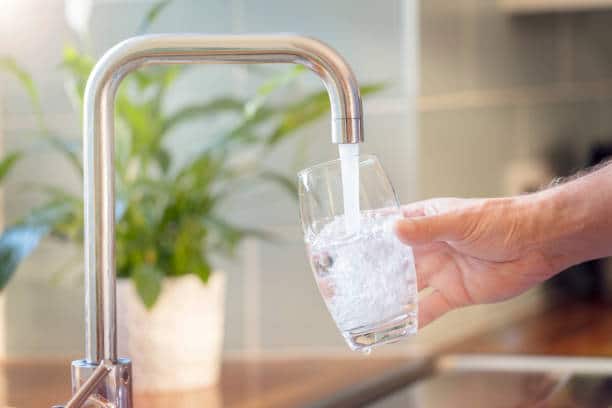Upfront System Costs
Starting prices for basic electric cylinders and gas systems are broadly comparable, normally ranging $1000 – $1500 installed. More advanced systems with smart controls and higher volumes or flow rates cost accordingly more.
Hot water heat pumps have notably higher initial purchase and installation costs, roughly double the price of entry-level electric and gas models starting around $2500+. Bigger homes requiring multiple units installed will also see expenses add up quickly with any system type.
Installation Requirements
Gas systems require connection to the gas mains supply which may increase initial plumber installation and certification costs unless your property already has gas lines provisioned. Locating external cylinders can also add complexity.
Electrical connections are simpler in most cases. Heat pumps need both electricity and drainage for condensate disposal which contributes to higher overall installation overhead. All systems need compliant pressure release valves and drain lines fitted within allowable lengths.
Operational Running Costs
Modern gas systems offer the cheapest operating costs, using less than half the energy of conventional electric heating. Although electricity is moderately cheaper per kWh than gas, the superior thermal efficiency of gas makes it less expensive for equivalent hot water volumes heated.
Well-sized heat pumps can come close to gas system running costs and remain cheaper than basic electric heating in the long run. Exact savings depend on your household usage, climate, and electricity/gas tariff rates.
Water Temperature Performance
Peak water temperatures possible for electric (80°C+) and gas systems (75°C) easily meet NZ’s 60°C Legionella safety guidance for hot water storage. Quality heat pumps reach 60°C+ comfortably but can’t produce the very high temperatures possible with direct electric or gas heating. This may matter for specialist commercial/industrial applications but isn’t an issue for typical residential usage.
Environmental Sustainability
Gas and electric systems show comparable overall carbon emission levels per unit of water heated according to research data. As electricity supplies in NZ progressively shift towards renewable generation into the future, the emissions from electric heating will progressively fall also. Heat pumps using only electricity offer the lowest current carbon footprint of the three technologies today.
Physical Size & Storage Volumes
Modern gas continuous flow systems require no external storage cylinder so can save considerable space. Electric cylinders occupy larger roof/external footprints for holding 20L+ water volumes heated. Heat pumps are also relatively bulky externally. If your household requires substantial hot water capacity, electric or heat pump tanks may take up significant space onsite.
Maintenance Requirements
Gas systems and condenser coils on heat pump units require periodic inspection and cleaning which doesn’t apply for electric water heating with no external equipment. Gas bottles also need replacing every 10-15 years adding to long term costs. But as electrically powered devices, heat pumps and electric cylinders generally need less preventative maintenance over their lifespan than gas units.
Safety & Risk Considerations
All regulated gas and electrical water heating installations must comply with strict safety guidelines on aspects like leak detection, flame failure response, ventilation for units, drainage and energy supply disconnects. Provided these standards are met across selection, design and ongoing maintenance, all systems present very low safety risks. Heat pumps offer high reliability without needing to accommodate risks specific to gas or electric heating.
Final Words
Making the optimal choice between these common hot water technologies isn’t straightforward, with each offering their own mix of benefits aligned to your home’s unique context and needs. Carefully weigh up these key comparative factors like installation and operational costs against performance, environmental impact, risks and practical constraints for your property. Consulting qualified plumbers can also give invaluable, tailored advice for deciding the best system to deliver hot water that’s safe, efficient and cost-effective over its lifetime.
Use our contact us page to reach us and we will be more than happy to discuss your hot water situation. Or give us a call on 0800 497658.
At Hot Water Solutions all we do is hot water!

